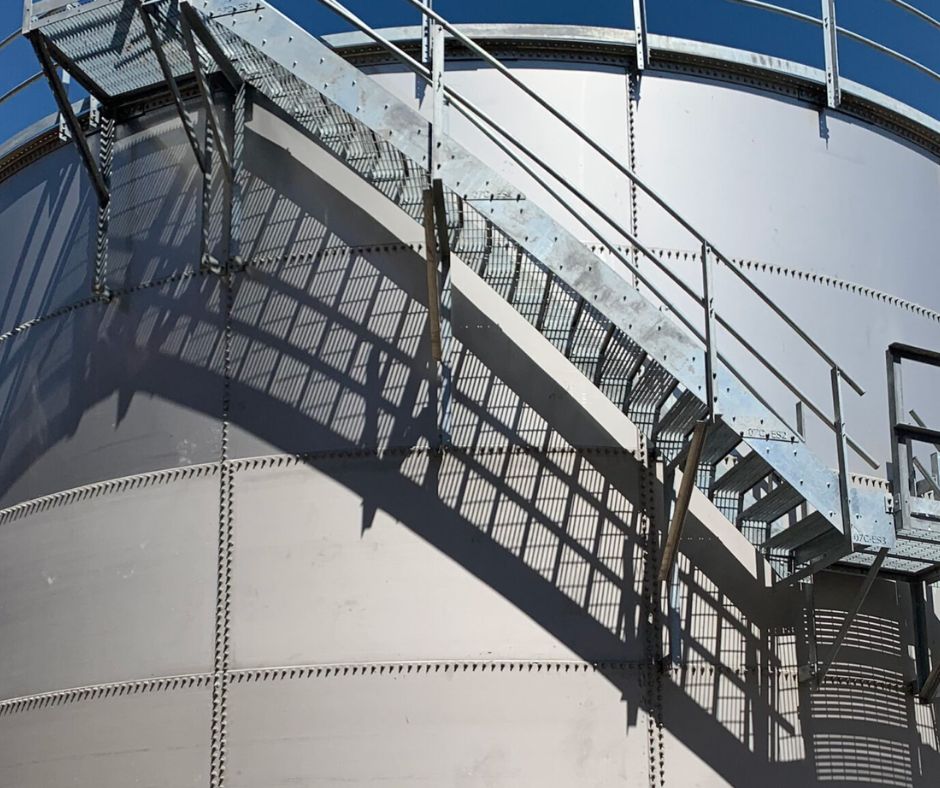Wastewater management is crucial when it comes to environmental sustainability. The need for efficient wastewater treatment technologies has increased as urbanization picks up speed. This article analyzes creative solutions that have the potential to completely change the wastewater management landscape, as well as the importance of wastewater tanks in solving this issue.
Page Contents
The Evolution of Wastewater Tanks
Wastewater tanks have undergone a remarkable evolution, adapting to the changing needs of communities and industries. Initially conceived as mere storage units, modern wastewater tanks are now integral components of advanced treatment systems. This section traces the historical development of these tanks, highlighting key milestones and technological advancements.
Types of Wastewater Tanks
Understanding the diverse types of wastewater tanks is crucial for tailoring solutions to specific needs. This section explores various tank configurations, such as aerobic and anaerobic tanks, settling tanks, and sequencing batch reactors. Each type serves a unique purpose in the wastewater treatment process, contributing to the overall efficiency of the system.
Sustainable Materials in Wastewater Tank Construction
As the world embraces sustainability, the materials used in wastewater tank construction have come under scrutiny. This section explores the shift towards eco-friendly and durable materials, such as fiberglass, polyethylene, and reinforced concrete. Utilizing these materials not only enhances the structural integrity of tanks but also aligns with the global push for greener infrastructure.
Advanced Monitoring and Control Systems
In the digital age, the integration of advanced monitoring and control systems has revolutionized wastewater management. This section delves into the implementation of sensors, real-time data analytics, and automation in wastewater tanks. These technologies empower operators to optimize treatment processes, minimize energy consumption, and respond promptly to fluctuations in wastewater composition.

Wastewater Tank Sizing and Optimization
Proper sizing and optimization of wastewater tanks are critical for achieving optimal treatment efficiency. This section explores the factors influencing tank size determination, such as population density, industrial activities, and peak wastewater flow rates. Additionally, it delves into optimization strategies, including the use of computational models and predictive analytics to enhance overall performance.
- Innovative Tank Designs: Explore cutting-edge designs that maximize space utilization and promote efficient water circulation.
- Decentralized Wastewater Systems: Highlight the benefits of decentralized systems, emphasizing their adaptability to diverse geographical and demographic conditions.
- Energy-Efficient Aeration Techniques: Discuss advancements in aeration technologies that enhance oxygen transfer efficiency, reducing energy consumption in wastewater treatment processes.
- Greywater Recycling: Shed light on the growing trend of recycling greywater using specially designed tanks, contributing to water conservation efforts.
- Natural Filtration Systems: Showcase the integration of natural processes, such as wetlands and constructed wetland tanks, in tertiary treatment stages for a more sustainable approach.
Resilience and Climate Adaptation
In the face of climate change, wastewater management systems must exhibit resilience to withstand extreme weather events. This section explores the incorporation of climate-adaptive features in wastewater tank designs, ensuring their durability and functionality in the midst of floods, droughts, and other climatic challenges.
- Elevated Tank Designs: Discuss the advantages of elevated tank designs that minimize the risk of flooding and facilitate gravity-driven flow during power outages.
- Seismic-Resistant Construction: Highlight the importance of seismic-resistant materials and construction techniques to safeguard wastewater tanks in earthquake-prone regions.
- Climate-Responsive Control Systems: Explore the implementation of intelligent control systems that adjust treatment parameters based on weather forecasts, optimizing performance in varying climate conditions.
Circular Economy in Wastewater Treatment
The concept of a circular economy is gaining traction, emphasizing the importance of recycling and reusing resources. This section explores how wastewater tanks contribute to the circular economy by recovering valuable materials, such as phosphorus and nitrogen, from the wastewater stream.
- Nutrient Recovery Technologies: Showcase innovative technologies that capture and extract nutrients like phosphorus and nitrogen from wastewater, transforming them into valuable resources for agriculture.
- Biogas Generation: Highlight the role of anaerobic tanks in biogas production, utilizing organic matter in wastewater to generate renewable energy for on-site use or grid injection.
- Effluent Reuse: Discuss the growing trend of treating wastewater to a high standard, allowing its reuse for non-potable purposes like irrigation, industrial processes, and cooling.
Community Engagement and Public Awareness
Wastewater management goes beyond technical solutions; it requires active community involvement and awareness. This section explores initiatives that promote community engagement, education, and awareness regarding the importance of proper wastewater management.
- Educational Outreach Programs: Highlight successful programs that educate communities about the impacts of improper wastewater disposal and the benefits of sustainable practices.
- Public-Private Partnerships: Showcase collaborative efforts between local governments, private industries, and community organizations to develop and maintain effective wastewater management systems.
- Citizen Science Initiatives: Explore how citizen science projects empower communities to actively participate in monitoring water quality and reporting irregularities, fostering a sense of ownership in wastewater management.
Conclusion:
In conclusion, the evolution of waste water tanks reflects a broader commitment to sustainable and efficient wastewater management. From innovative designs to the integration of advanced technologies, the journey of wastewater tanks exemplifies the constant drive to meet the challenges of an evolving world. As communities and industries continue to seek environmentally responsible solutions, the role of wastewater tanks will undoubtedly remain at the forefront of this ongoing narrative.



